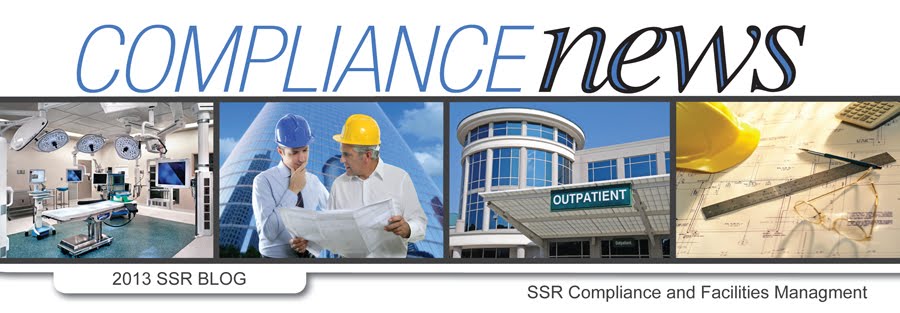By Dean Samet, CHSP
In a July 2010 Environment of Care News article entitled, Ensuring Effective Fire Alarm and Automatic Sprinkler Systems, The Joint Commission says that there has been some confusion among health care organizations regarding the requirements for the master fire alarm panel location.
Monday, November 29, 2010
Compliance News: Location of the Master and Ancillary Fire Alarm Panels
Labels:
Location of the Master and Ancillary Fire Alarm Panels,
LS.02.01.10,
LS.02.01.34,
NFPA 101-2000:9.6.4,
NFPA 72-1999: 1-5.6 and 3-8.41
Compliance News: Manual Transmission of Fire Alarm Signals Permitted Under Certain Conditions by TJC
By Dean Samet, CHS
In the July 2010 Environment of Care News article Ensuring Effective Fire Alarm and Automatic Sprinkler Systems, The Joint Commission (TJC) reintroduced a manual method of fire alarm transmission policy. This policy is meant to be applied when the four traditional methods of transmitting fire alarm signals to the local fire department cannot be achieved per the 2000 NFPA 101, Life Safety Code® (LSC), Section 9.6.4 Emergency Forces Notification, which in turn references the 1999 NFPA 72, National Fire Alarm Code®.
Compliance News: Accreditation Survey Findings Report Includes TJC and CMS Findings
By Dean Samet, CHSP
In July of 2009 The Joint Commission modified its Accreditation Survey Findings Report to include both TJC and Medicare requirements which were identified as being less than fully compliant at the time of survey. This is primarily for organizations that use The Joint Commission accreditation for deemed status purposes. TJC has developed crosswalks of their requirements to Medicare Conditions of Participation (CoPs) as reflected in a new report format.
In July of 2009 The Joint Commission modified its Accreditation Survey Findings Report to include both TJC and Medicare requirements which were identified as being less than fully compliant at the time of survey. This is primarily for organizations that use The Joint Commission accreditation for deemed status purposes. TJC has developed crosswalks of their requirements to Medicare Conditions of Participation (CoPs) as reflected in a new report format.
Labels:
TJC and CMS Findings
Compliance News: More Days On-Site for Life Safety Code® Specialist surveyors
By Dean Samet, CHSP
TJC is giving their Life Safety Code® Specialist Surveyors additional days on site as reported in the October 20, 2010 Joint Commission Online and November 2010 The Joint Commission Perspectives®. Effective January 1, 2011, both hospitals and critical access hospitals will have an LSC Specialist on-site from one to three extra days, depending on the size of the hospital. The LSC Specialist surveyors will be assessing compliance against both Life Safety (LS) and Environment of Care (EC) chapters. Fire safety equipment and fire safety building features standard EC.02.03.05 and emergency power systems standard EC.02.05.07 will be particular areas for review and discussion as they have historically ranked as some of the more challenging standards with which to comply. The extra days should result in a more thorough and enhanced LS and EC assessment and opportunity for additional educational training.
Monday, November 1, 2010
Power Play: NFPA Updates Standards to Improve Emergency Systems
By David Stymiest, P.E., FASHE, CHFM
The National Fire Protection Association recently published the latest editions of NFPA 110 (Standard on Emergency Power Supplies) and NFPA 111 (Standard on Stored Electrical Energy Emergency and Standby Power Systems), each of which features changes of vital interest to health facility professionals.It is unlikely that the 2010 editions of these standards, for which the Technical Committee (TC) on Emergency Power Supplies has primary responsibility, will be imposed on accredited health facilities right away. Both the Centers for Medicare & Medicaid Services (CMS) and The Joint Commission (TJC) invoke earlier editions that are mandatory references through the 2000 NFPA 101 Life Safety Code®.
Read entire article here: Power Play
Subscribe to:
Posts (Atom)
